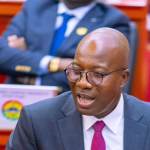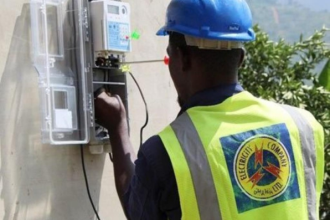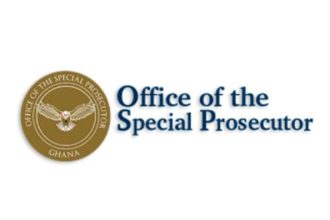The Chamber of Petroleum Consumers-Ghana (COPEC) is expecting an increase in fuel prices in the next few days and wants the government to intervene to cushion consumers.
The energy think tank has upped its advocacy for the review of the numerous taxes and levies that add to the price build-up.
According to Executive Secretary of COPEC, Duncan Amoah, the price of crude (WTI) climbed 3.16% on Wednesday, September 15, reaching $72.69 by 10:00 a.m. – up to $2.23 per barrel on the day.
At the same time, Brent crude climbed 2.89%, up to $2.13 per barrel, reaching $75.73.
“Prices of finished products particularly gasoline (petrol ) has surged from $694/MT as of September 13 to above $720/MT as of September 16, 2021, representing a 3.7% increment whiles gasoil prices have seen an increase from $572/MT as of September 12 to $604/MT by September 16, representing 5.6% increment,” COPEC cited in a statement.
But the institution is much more concerned about the ripple effects in Ghana.
COPEC outlined that in addition to international prices, the Ghana Cedi has also seen a further depreciation in recent times to the other major trading currencies, especially the US Dollar.
READ ALSO: Overnight Fuel Hikes: COPEC Raises Alarm
“Forward forecast figures for the Ghana cedi currently stands at around Ghc6.19/dollar from the previous rates of Ghc6.15/dollar as of 10th September representing 0.05% depreciation over the last week.
“The two key indicators, i.e. international market prices and foreign exchange differentials are all likely to affect average pump prices of petroleum products by between 2% to 3% or (10p/Litre for both products) in this second pricing window of September 2021,” he predicted.
COPEC believes this would likely translate to reviewed figures by the various Oil Marketing Companies (OMCs) as those selling at current prices for gasoline and gasoil at Ghc6.38 could be reviewed upwards to between Ghc6.45/-Ghc6.52/L for both gasoline and gasoil.
The other OMCs whose current prices for both gasoline and gasoilare hovering between Ghc5.88/Litre to Ghc6.20/Litre could be selling between Ghc6.05/L to Ghc6.38/L for both gasoline and gasoil in this second window of September.
“The surge in prices of petroleum products locally at the pump if left unchecked could likely continue to the end of 2021 as winter approaches,” COPEC warned.
COPEC pointed out that these marginal increases if left to continue would further worsen the cost of transportation, general goods and services to invariably affect all other productive sectors of the economy and economic life.
In view of that, COPEC has suggested four recommendations to address the situation:
- Immediate removal of the price stabilisation and Recovery Levy of between 14-16p/Litre for diesel and petrol.
Or The need for authorities working through the ministries of finance and energy to apply the already collected funds accruing to the Price Stabilization and Recovery Levy Fund to offset or stabilise the forex and price differentials from increasing on the price build-up.
- Consider reviewing the Unified Petroleum Price Fund (UPPF) to enable the various OMCs to manage their own transportation across the country of the product which is likely to see this margin drop by at least 10p/Litre.
- A further review downwards of other taxes such as the special petroleum tax ( SPT ) on petroleum products in the yet to be presented 2022 budget which is expected to to be presented in the last quarter of 2021.
- An immediate and thorough review of the entire petroleum price deregulation programme with the view to limiting the overbearing influence of both taxes and forex on pump prices.
Crude oil-producing country importing fuel for use
Despite the country producing oil in large quantities, the lack of refineries has prevented the country from enjoying lower prices of finished products.
As of September 2020, crude oil production capacity in Ghana was at 196,000 barrels per day.
Addressing a meeting with 20 international oil companies in Norway, Finance Minister Ken Ofori-Atta indicated that Ghana could hit 500,000 barrels per day by 2025.
However, Ghanaians continue to buy fuel at exorbitant prices due to importation and taxes slapped on the commodity.
What can be done to address the situation?
The COPEC-Ghana Executive Secretary told The Ghana Report, “We have a local refinery that we could have leveraged to get some fuel security at lower prices, but unfortunately we don’t think there is political will to refurbish the Tema Oil Refinery”.
Mr Amoah observed a fully functional refinery would cut the logistical cost which adds to the price build-up by exporting crude to Europe to be refined before importing back to Ghana.
“The need to get TOR back on stream and the need for political interference to be stopped holds the key for all for us,” he underscored.
Additionally, he cited the Bulk Oil Storage and Transportation Company Limited (BOST) failure in executing its mandate.
Mr Amoah explained that BOST is supposed to store huge volumes of fuel and release to the market to level prices and to check shortages “without overstretching the already burdened Ghanaian taxpayer”.
However, “we do not see that function of BOST and they are now focusing on trading…which was not the purpose of the BOST Act but to hold strategic stock”.
You may also be interested in:
















